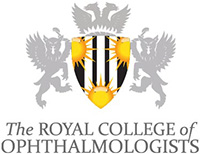| TITLE | BREAKING BAD NEWS |
|---|
Code |
C6 |
Learning Outcome |
- Communicate potentially upsetting information in an appropriate manner. This should include giving the patient time to ask questions in an appropriate environment.
- Provide information about appropriate support.
|
Assessment |
MSF Part 2 FRCOphth
|
Assessor |
Feedback likely from: medical staff, Allied Health Professional (nurse, optometrist, orthoptists) |
Target Year of Achievement |
Year 3 (annual review) |
Related Learning Outcomes |
AER4
|
Overview |
- Be prepared that breaking bad news may be a source of distress for both patient and doctor.
- Be aware that a patient may consider a diagnosis upsetting, even when it is relatively routine for your practice.
- Consider that the way bad news is delivered will be remembered by the patient and may affect them for the rest of their life. This is a vital area to get right.
- Remember to check whether the patient wants a friend/relative/carer in on the discussion.
- Be prepared for how your patient may react when potentially bad news is communicated to them either during the consultation or possibly by letter; how can support be provided in this context?
- Allow ample time for questions to be asked and have the appropriate responses ready.
- Arrange appropriate timely follow-up with yourself and/or another appropriate professional, as the patient will probably forget much of what they are told. Consider that a follow-up phone-call, letter or email may also help.
- Continuously develop your skills further; reflect on what could have gone better in an interaction, ask a colleague to observe you and feedback, collect patient feedback, consider courses.
|
Resources |
View Resources |
